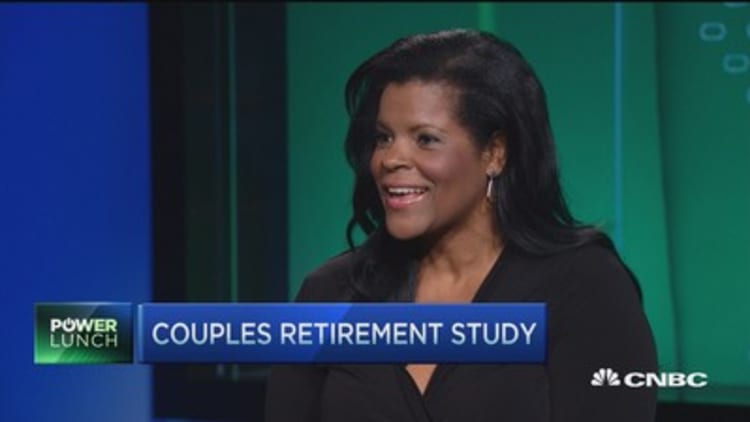


Saving for retirement is a struggle for most of us, what with disappearing pensions, stagnating wages and the rising cost of college.
But saving for retirement is a special challenge for one vulnerable group: homemakers. In the U.S., two-thirds of homemakers aren't prepared for retirement and more than half, 51 percent, have no strategy at all, according to a new survey by the Transamerica Center for Retirement Studies and the Aegon Center for Longevity and Retirement.
The overwhelming majority of homemakers—81 percent in the United States—are women, the study found, and that puts them at greater risk for financial insecurity in retirement.
For one thing, women tend to live longer, so whatever retirement money they do have has to stretch further. The average life expectancy for a 65-year-old woman today is 86.6, compared with 84.3 for men, according to the Social Security Administration.
Women are more likely than men to lose a partner in old age. In 2013, 49.7 percent of women aged 65 or over were widowed, divorced, or separated, compared with 22.8 percent of men, according to Census Bureau data.
These events often have a devastating effect on women's finances: a woman's household income falls 41 percent after divorce, on average, almost double the decline for men, according to the Government Accountability Office. Women are also more vulnerable in widowhood: after losing a partner their income declines an average of 37 percent, compared with 22 percent for men.
In addition, while women have been gaining confidence when it comes to managing money, a study by Prudential found that just one-third gave themselves an "A" for their money management skills.
"In the U.S. and other countries, it's a hangover from prior generations in which women were not involved in family finances," said Catherine Collinson, head of both centers. She also faulted the paucity of information sources for women. "In our own scan of available websites that are geared toward women, there is a greater emphasis on bridal gowns than budgets," she said.
Researchers found that homemakers were more likely than other workers to associate negative outcomes, such as ill health, insecurity and poverty, with retirement.
Homemakers are not just hurting themselves with habits like not being habitual savers. (Just 29 percent of homemakers with children described themselves as habitual savers in the new study.) They also risk sending negative messages to the children they are caring for. But Collinson said the new findings can serve as a wake-up call that changes this trajectory.
"This is a huge opportunity for homemakers. By getting involved in family finances, they can also get involved in teaching their kids about money," Collinson said. "Children are greatly influenced by their parents. By increasing their attention to household finances and even making kids part of the conversation—as appropriate—they can also go a long way toward shaping their children's financial future."
Correction: An earlier version of this story misstated the name of the Transamerica Center for Retirement Studies.



